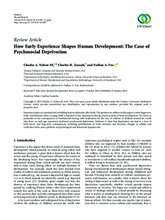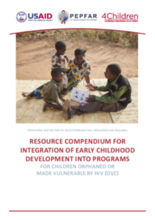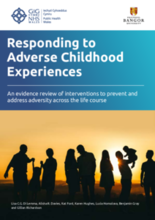Displaying 141 - 150 of 490
This article provides a review of indicators of child well-being in the six Gulf countries (Bahrain, Kuwait, Oman, Qatar, Saudi Arabia, and the United Arab Emirates), focusing on well-being in six domains: physical health, behavioral adjustment, psychological well-being, social relationships, safety, and cognitive well-being. The article highlights children's participation in decisions affecting their lives, relationships with parents and caregivers, and protection from abuse and neglect, among other indicators.
The question addressed in this paper from the Neural Plasticity journal is what happens to brain and behavior when a young child is deprived of key experiences during critical periods of brain development.
The current study examined longitudinal trajectories of memory and executive functioning (EF) from childhood to adolescence in the Bucharest Early Intervention Project, a randomized controlled trial of foster care for institutionally reared children in Romania.
This study used magnetic resonance imaging to compare adolescent AIDS orphans reared in institutions with a sex- and age-matched group of healthy adolescents reared in families in China using a voxel-based morphometry analysis.
Written for USAID and PEPFAR implementing partners, with a focus on OVC practitioners, this is a user-friendly compendium of current resources, information and job aids for early childhood care, stimulation and education.
In this paper, the authors advance a framework for examining the nature and consequences of neglect, which they posit can be represented as variations along a continuum from severe psychosocial neglect to environmental enrichment.
Para ayudarle a los sistemas de primera infancia en los E.E.U.U. a aprender a trabajar con padres de maneras que promuevan resultados equitativos y maximicen las oportunidades para todos los niños 40 padres líderes y personal de agencias de nueve comunidades de Early Childhood Learning and Innovation Network for Communities (EC-LINC) se reunieron en enero de 2018 para crear un manifiesto para el cambio.
This brief guide from the Harvard Center on the Developing Child outlines 5 steps for primary caregivers to practice serve and return with their child.
Esta guía breve del Harvard Center on the Developing Child presenta 5 pasos para cuidadores practicar “saque y volea” con su niño/a.
To support innovation in addressing adverse childhood experiences (ACEs), the authors have undertaken a review of evidence on common approaches to prevent ACEs and/or mitigate their negative impacts in Wales.






